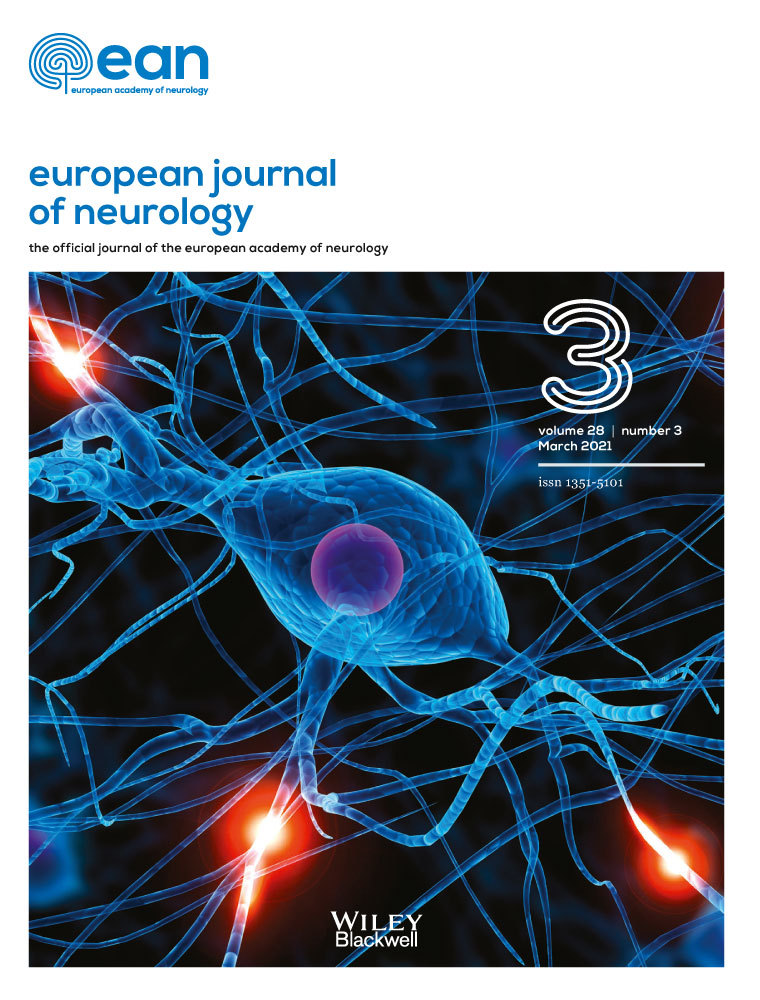The Framingham cardiovascular risk score and 5-year progression of multiple sclerosis
Abstract
Background and purpose
Cardiovascular risk factors and comorbidities can affect the prognosis of multiple sclerosis (MS). The Framingham risk score is an algorithm that can estimate the 10-year risk of developing macrovascular disease. Our objectives were to evaluate the possible association between the Framingham risk score at baseline and MS relapses, disability, and disease-modifying therapy (DMT) choices over a 5-year follow-up.
Methods
This is a retrospective cohort study including 251 MS subjects. At baseline, we calculated the Framingham risk score considering the following variables: age, sex, diabetes, smoking, systolic blood pressure, and body mass index. MS outcomes including relapses, disability, and treatments were collected over 5 years. Cox proportional regression models were employed to estimate hazard ratios (HRs).
Results
A one-point increase in the Framingham risk score was associated with 31% higher risk of relapse (HR = 1.31; 95% confidence interval [CI] = 1.03, 1.68), 19% higher risk of reaching of EDSS 6.0 (HR = 1.19; 95% CI = 1.05, 3.01), and 62% higher risk of DMT escalation (HR = 1.62; 95% CI = 1.22, 3.01).
Conclusions
Higher cardiovascular risk was associated with higher risk of relapses, disability, and DMT escalation in MS. Early identification, correction, and treatment of cardiovascular comorbidities should be carefully considered within MS management.
CONFLICT OF INTEREST
R.L. has received honoraria from Almirall, Biogen, Merck, Teva, Roche, Novartis, Sanofi-Genzyme, and Teva. A.C. has received research grants from Almirall, and honoraria form Novartis and Roche. V.B.M. has received research grants from the Italian MS Federation and honoraria from Almirall, Bayer, Biogen, Merck, Roche, Novartis, Sanofi-Genzyme, and Teva. M.M. has received research grants from ECTRIMS-MAGNIMS, UK MS Society, and Merck; honoraria from Biogen, Merck, Novartis, and Roche; and consulting fees from Veterans Evaluation Services. The other authors have nothing to disclose.
Open Research
DATA AVAILABILITY STATEMENT
Data are available upon request to the corresponding author.




